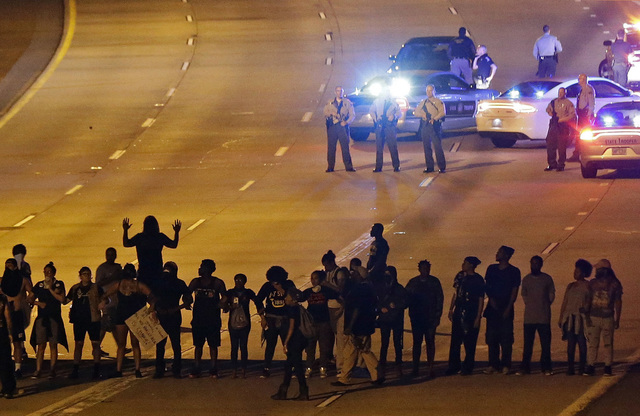NEW YORK — Emotionally wrenching politics, foreign conflicts and shootings at home took a toll on Americans in 2016, but they are entering 2017 on an optimistic note, according to a new poll that found that a majority believes things
NEW YORK — Emotionally wrenching politics, foreign conflicts and shootings at home took a toll on Americans in 2016, but they are entering 2017 on an optimistic note, according to a new poll that found that a majority believes things are going to get better for the country next year.
A look at the key findings of the Associated Press-Times Square Alliance poll:
___
SO HOW WAS 2016?
Americans weren’t thrilled with the year. Only 18 percent said things for the country got better, 33 percent said things got worse, and 47 percent said it was unchanged from 2015.
On a personal level, they were optimistic about 2017.
Fifty-five percent said they believe things will be better for them in the coming year than in the year that just concluded. That’s a 12-point improvement from last year’s poll.
Americans interviewed about the poll’s results expressed some of that optimism.
“Next year will be better than this year, because people will have more jobs and they’ll have more money to spend,” said Bourema Tamboura, a Harlem resident behind the wheel of a New York car service.
“I’m hoping 2017 will be better,” added Elizabeth Flynn, 62, an elementary schoolteacher from Peabody, Massachusetts. “You’ve got to be optimistic, and I’m going to try.”
Democrats are more likely than Republicans to say 2016 was worse for the country than 2015. And Republicans are especially likely to feel that 2017 will be even better for them personally.
University of Miami professor Benjamin Alsup said he needed only three words to explain why 2016 felt worse for him: “Trump, Trump, Trump!”
Robert Greenstone, a New York commercial real estate broker, said the political discourse leading up to Republican Donald Trump’s election as president played havoc with people’s emotions.
“The amount of disinformation made people suspect of everything and everyone, even their neighbors,” he said.
____
U.S. ELECTION LEADS TOP NEWS EVENTS
The U.S. elections top Americans’ list of 10 top news events in 2016. Three-quarters called the presidential election and Trump’s victory very or extremely important.
Sixty-three percent ranked mass shootings and bombings in Orlando, Florida, and in Belgium, Turkey, Pakistan and France as personally important news stories of the year.
Fifty-one percent said they found news stories about the deaths of people at the hands of police officers, or news about ambush attacks on police in three states, to be among the year’s most important news events.
Fourth on the list are 43 percent who described the spread of the Zika virus as important.
The three events described by the largest percentages of Americans as not too important included the death of Muhammad Ali (50 percent), approval of recreational marijuana use in four states (43 percent), and the death of Fidel Castro (40 percent).
____
TOP MOMENTS IN POP CULTURE AND SPORTS
A majority of Americans, including 7 in 10 Midwesterners, called November’s World Series win for the Chicago Cubs to end their 108-year drought memorable.
Of nine other pop-culture items tested, two were called memorable by about half of Americans: the death of Prince, David Bowie and Leonard Cohen; and the Olympic victories of the U.S. women’s gymnastics team.
The two least-notable events for Americans, of the 10 possible choices in the poll, were the Angelina Jolie-Brad Pitt divorce filing and the “Pokemon Go” app game phenomenon, each described by most as forgettable.
____
RINGING IN THE NEW YEAR
About half of Americans plan to celebrate the New Year at home. About 2 in 10 plan to go out to a friend or family member’s home, and 1 in 10 to a bar or restaurant. About a quarter don’t plan to celebrate at all.
About 6 in 10 plan to watch the Times Square ball drop, nearly all of whom will watch on TV.
___
The AP-Times Square Alliance Poll of 1,007 adults was conducted online Dec. 9-11, using a sample drawn from GfK’s probability-based KnowledgePanel, which is designed to be representative of the U.S. population. The margin of sampling error for all respondents is plus or minus 3 percentage points.
The poll is a cooperative effort between AP and the organizers of the Times Square New Year’s Eve Celebration, the Times Square Alliance and Countdown Entertainment. The Alliance is a nonprofit group that seeks to promote Times Square, and Countdown Entertainment represents the owners of One Times Square and the New Year’s Eve Ball Drop.
___
Online: https://www.ap-gfkpoll.com



